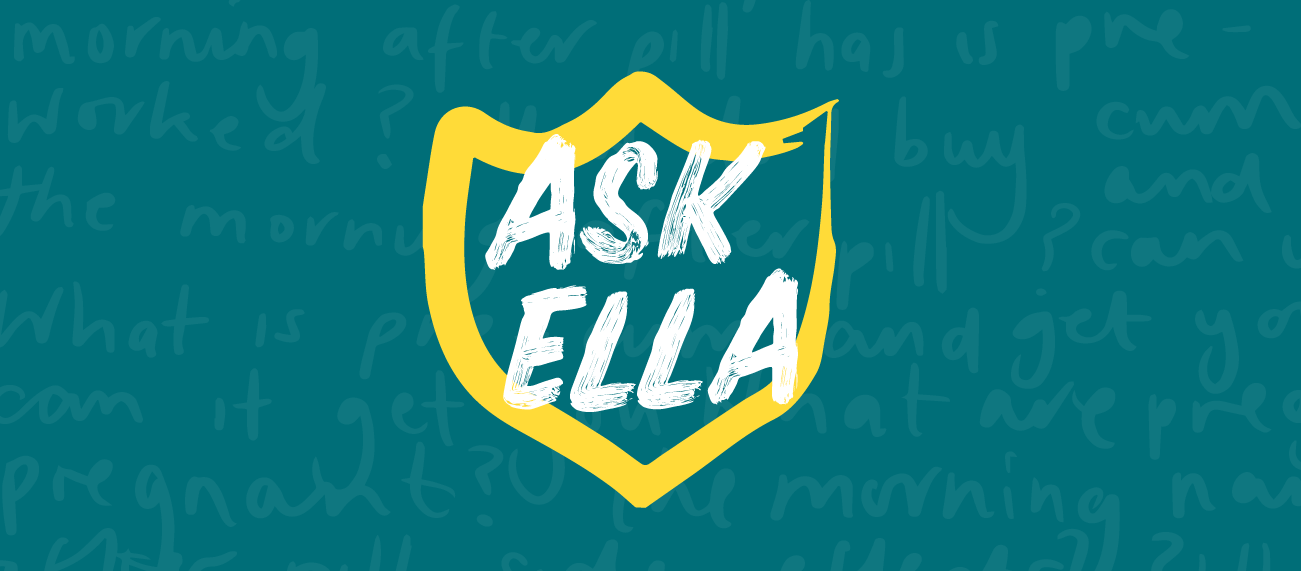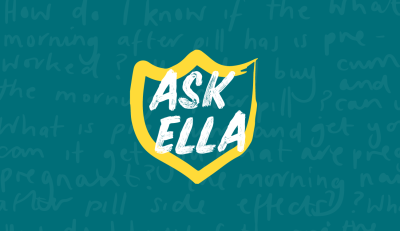Almost 50% of respondents to a 2019 survey conducted by ellaOne® said that they had heard the morning after pill can make you infertile if you use it ‘too many times’. Myths like this are not true, but they can affect how people feel about emergency contraception and whether they choose to take it.
If you’re concerned about how the morning after pill may affect your fertility, you’re in luck. We spoke to Sam Leimanis from the British Pregnancy Advisory Service (BPAS) to get answers for your fertility-related questions.
Does the morning-after pill affect your fertility?
“There is no evidence to suggest that emergency hormonal contraception can affect your future fertility. It is generally a very safe medication that thousands of women and people take every year,” says Sam.
The morning-after pill works by delaying ovulation, so the egg is held back and there is nothing for sperm to fertilise if you have experienced a contraceptive failure or had unprotected sex. Emergency contraceptive pills are only effective for one incident of unprotected sex, so it will not continue to protect you if you have unprotected sex again.
Is there any truth in the idea that the morning after pill can make you infertile?
“No. Emergency hormonal contraception cannot make you infertile,” says Sam.
There is no reason why the morning after pill would make you infertile or have any effect on your long term fertility. It works much the same way as regular contraceptive pills in that it delays ovulation, but unlike contraceptive pills, it is not intended as a daily contraceptive option.

Can you take the morning after pill multiple times?
“Yes, you can safely take emergency hormonal contraception multiple times, even within the same menstrual cycle – although it is not recommended as its efficacy can decrease. The most effective form of emergency contraception is the IUD, or copper coil. We recommend consulting with your GP to see what kind of regular, on-going contraception might work best for you,” says Sam.
The morning after pill is not recommended as a regular method of contraception. Find out about your contraceptive options here.
Why shouldn't you use the morning after pill as your method of contraception?
“Emergency hormonal contraception is not always 100% effective dependent on a number of factors including how long it is taken after unprotected sex, and when it is taken according to your menstrual cycle. However, it will have no long-term effect on your future fertility. It is important to remember that the only method of contraception that also protects against STIs is condoms,” says Sam.
The morning after pill works by delaying ovulation, so it will not be effective if you have already ovulated. The contraceptive pill, which is a daily contraceptive option, prevents ovulation and, as you take the pill daily, it continues to prevent you from ovulating unless you decide to come off the pill.
Emergency contraception is only intended for emergency situations, like if your condom broke, if you missed your pill or if you had unprotected sex. As it is intended to be used after the sex rather than a preventive method before the sex, it should not be used as a regular method of contraception.
If you are interested in trying a contraceptive pill as your regular contraceptive method, you might be interested to know that you can now purchase some progestogen-only pills, like Hana®, over the pharmacy counter without needing to wait for a doctors appointment. The pharmacist will have a consultation with you to see if the progestogen-only pill is suitable for you.
Have you ever taken the morning after pill? If so, why not share your experience to help break the stigma around emergency contraception?
ellaOne® 30mg film-coated tablet contains ulipristal acetate and is indicated for emergency contraception within 120 hours (5 days) of unprotected sex or contraceptive failure. Always read the label.
Hana® 75µg film-coated tablets contains desogestrel and is an oral contraception for women of child bearing age to prevent pregnancy. Always read the instructions on the package leaflet carefully.







